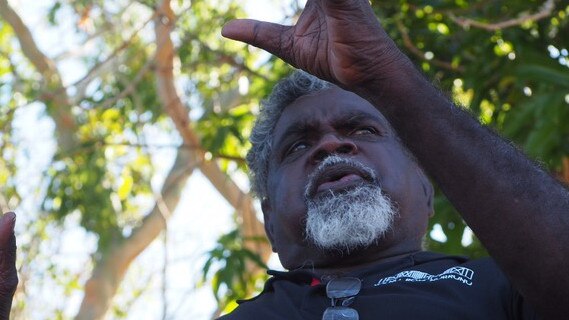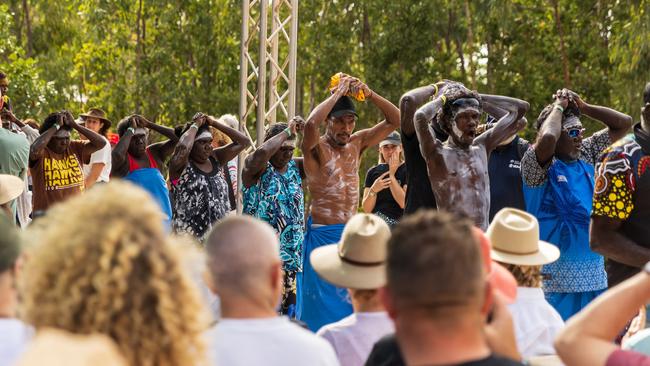Garma Festival hears from Yolgnu leaders about the impact of the Intervention on communities
Yolgnu leaders have taken the stage at Garma Festival to call for more action against Indigenous inequality following the removal of the Intervention. SEE WHAT THEY SAID
News
Don't miss out on the headlines from News. Followed categories will be added to My News.
THE end of the Intervention should not be met with silence, Yolgnu leaders say, calling for substantive action against Indigenous inequality in the Northern Territory.
Speaking at the Garma festival, elder and NT parliamentarian Yingiya Guyula called for the damage of the Intervention to be addressed directly and proactively to fix the “crisis” within remote communities.
“As we come to the end of the Intervention and the end of ‘Stronger Futures’, we have barely survived another wave of colonisation,” he said.
The 2007 Intervention temporarily suspended the Racial Discrimination Act, native title and the NT’s Self Government Act, among others, to bring in a suite of policies directly aimed at Aboriginal Territorians.

Alcohol and pornography bans, welfare ‘quarantining’, increased policing and the deployment of army troops were rolled into remote communities.
“The Intervention was shameful. It was systematic dehumanisation of all people,” Mr Guyula said.
“And at the end of the era must be about the assertion of our sovereignty through diplomatic conversations between the federal government and those First Nations who want to create treaty.”
Mr Guyula said it was not enough to let Intervention policies “lapse”, as they did recently on the alcohol bans.
“We need to feel the roll back of the Intervention,” he said.
“We need to feel it the same way we felt the Intervention pushed over the top of us, suffocating us.
“We now need to feel the pressure being removed rather than a silence of policy lapsing — we need to see a better way.”
“We are fighting for ourselves, for our sovereignty to be recognised and respected.”
Mr Guyula said the relationship between his two worlds as a Yolgnu man and the government was one of “violence”.
“It continues to be violent: The high rates of poverty, incarceration, overcrowding, unemployment, suicide, family violence, community violence, school refusal, early deaths and deaths from preventive diseasesm” he said.
“Our communities are in a state of crisis. That is about survival.”

This month, alcohol legally flowed into about 400 previously dry communities across the Territory for the first time in 15 years.
The NT Government Associations and Liquor Amendment Bill 2022 replaced the Intervention-era bans, but were widely criticised for a lack of consultation and a lack of promises for additional resources to deal with alcohol related violence, domestic violence, health issues and addiction.
Standing before the Garma audience, Mr Guyula called for leaders to respect the “truth telling” space.
“Our generous spirits, our trust and hospitality have been abused and our Elders who began the cause for treaty have passed away,” he said.





